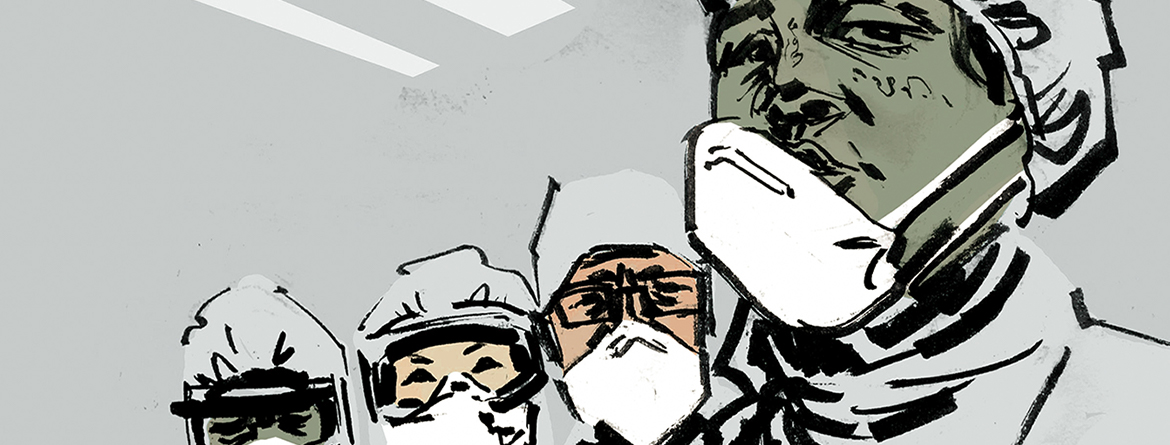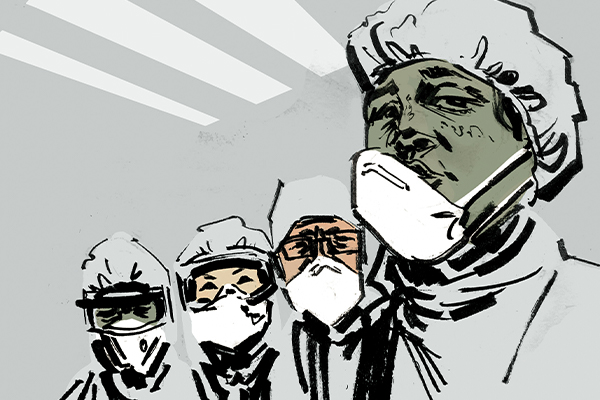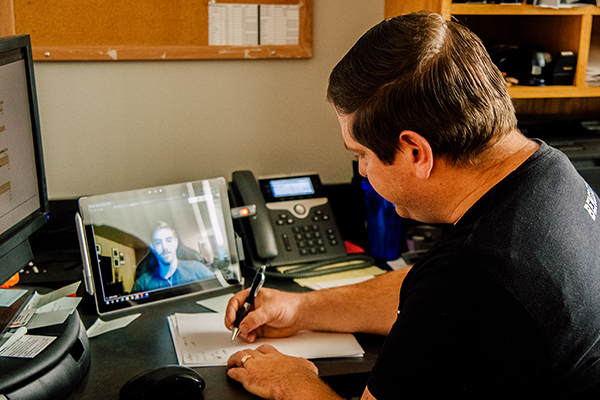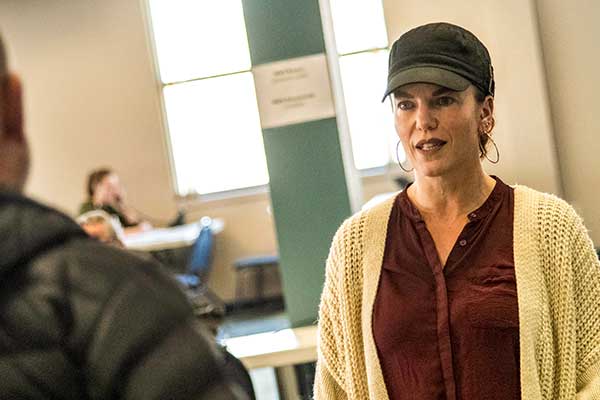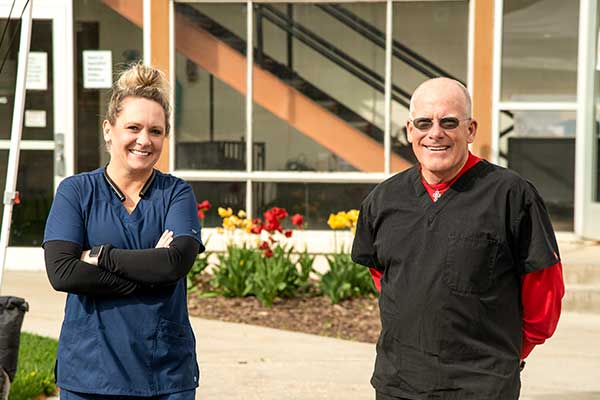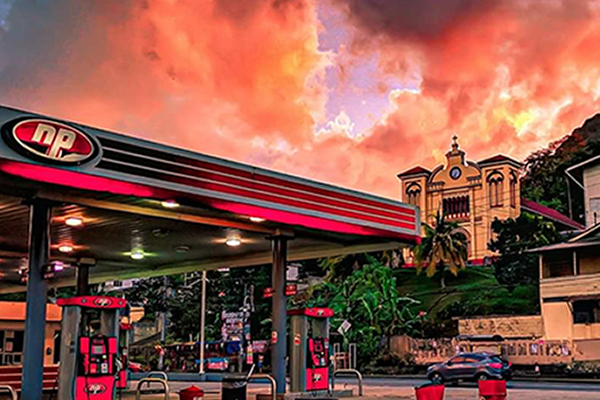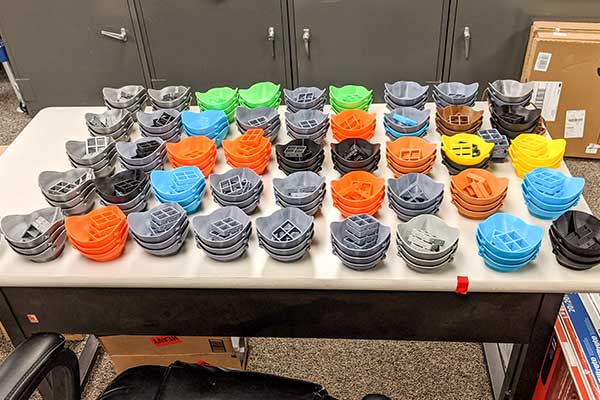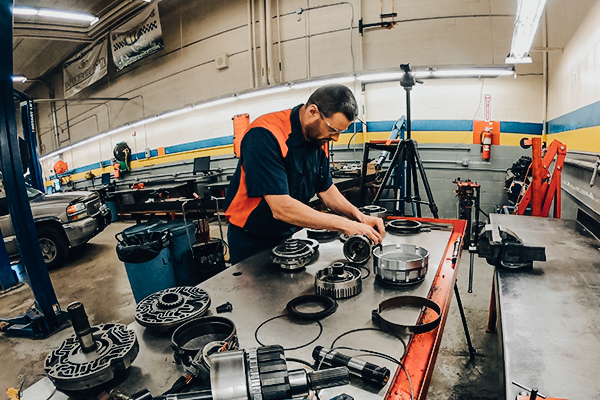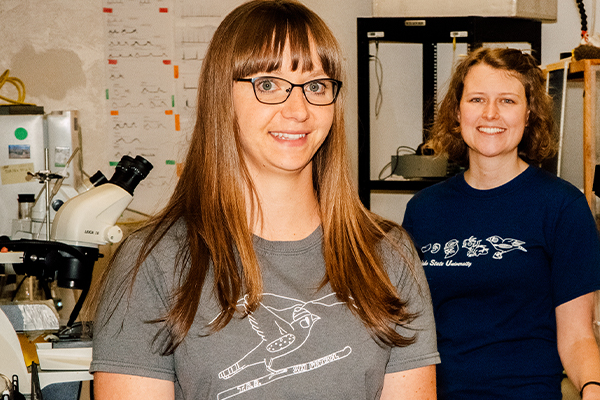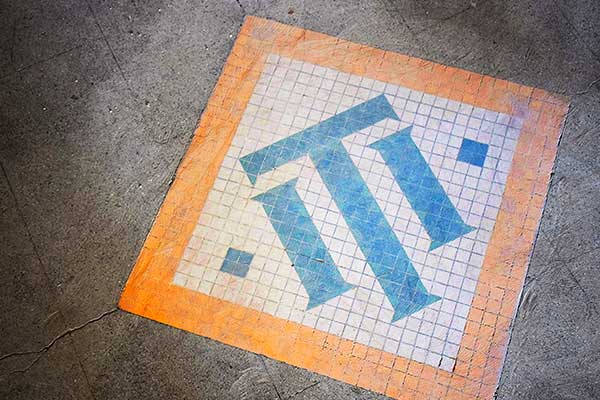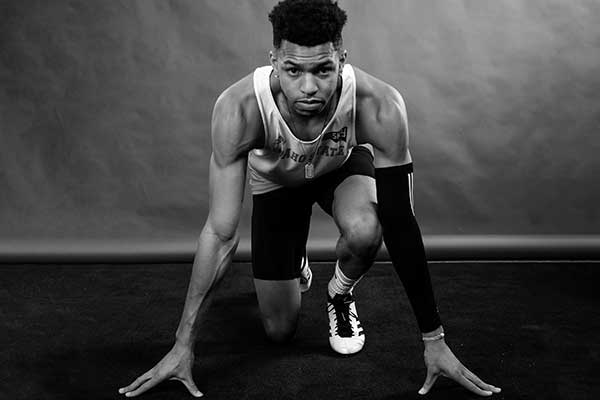Brittiney Curzon’s nursing education from Idaho State University and experience working at Portneuf Medical Center came in handy when the PMC intensive care unit nurse volunteered to be on the frontlines of the Covid-19 pandemic at a New Jersey hospital this spring.
In early April, Curzon and co-worker Jill McQuary headed to Mountainside Hospital in Montclair, New Jersey, owned by the same parent company of PMC, Ardent Health Partners.
The PMC nurses worked 13-14 hours daily for 11 of the 13 days they were in New Jersey. Curzon said the patients were “very, very sick” and the ratio of patients to nurses in the ICUs was double a normal load, with each nurse caring for three to four patients at a time.
“It was challenging because you are just there to save their lives,” Curzon said. “It is like being in a war zone really – you’re doing the best you can, but there weren’t the resources, the space or the time, so it was hard. You couldn’t really be the kind of nurse you wanted to be because you were in survival mode trying to keep them alive.”
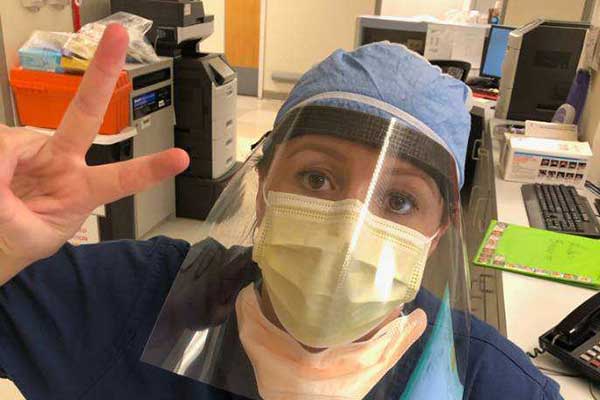
Brittiney Curzon
Curzon said that every day for the first week during her shift she would hear about a dozen code blues or calls for rapid responses for patients that had either died on the floor or had to be incubated.
Because of the nature of their work at PMC, the Idaho nurses were used to more autonomy and figuring out things on their own than the nurses they worked alongside with in New Jersey. Because of the size and type of hospital it was, roles were more regimented at Mountainview Hospital than at PMC, she said.
“Sometimes you have to ‘MacGyver’ stuff a little bit,” Curzon said. “It’s funny, there were some things that we would normally do but they didn’t do out there, so we could help teach the nurses, too.”
The skills she learned during her time at Idaho State helped her to be versatile in tough situations.
“I thought the education (at ISU) was awesome, and hands-on, and I loved my instructors because they taught us there are a lot of ways to do things as long as you end up where you need to be and you can find you own path,” said Curzon, who graduated with a Bachelor of Science degree in nursing in 2007 and began working at PMC in 2010 during the H1N1 flu epidemic. “It was great.”
The New Jersey hospital had created a second intensive care unit to accommodate for more patients being admitted who were on ventilators and four of the hospital’s five floors were devoted to caring for Covid-19 patients. In the ICUs almost all of the patients were on ventilators.
“In a normal, everyday world, people that are sick would not have stayed at that hospital,” Curzon said. “They would be shipped out to a more critical hospital because they weren’t used to taking in such sick people, but they were just overrun. You could tell they were grateful for the help when we got there.”
“At any given time there were 30 people in the ER who were patients that were admitted but there just weren't enough beds so they were just waiting down there sometime for a couple of days,” Curzon said.
She provided another wartime analogy when giving her reason for volunteering to serve on the East Coast.
“It is kind of like you are a soldier going off to war,” Curzon said. “Well, Covid-19 is kind of like a medical war, and we have the training to help, so I felt obligated to help if I had the chance. I’m a registered nurse trained on how to save people’s lives. I was given the opportunity to go and do it. It was totally different than what I thought it would be, but it was good.”
She said she also volunteered for the service to learn what she could about treating the Covid-19 virus so she could bring back knowledge about treating the virus back to Pocatello.
While in Montclair, the two PMC nurses didn’t do much but work and go back to their hotel to rest. On their day off, however, they visited New York City, where the effects of the pandemic were noticeable. Curzon had never visited the Big Apple before and was still in awe of the sights, but McQuary had been to the city before and was very sad about what she saw.
“You see the TV of New York with all the traffic jams and tons of people, but there wasn’t hardly anybody on the streets and everyone was wearing a mask and if you visited a grocery store downtown, the line was back two blocks with people waiting to get in,” Curzon said. “It was just different, it was just weird – you expect to drive in New York City and it would be hustle and bustle but it wasn’t. We could stop the car in the middle of the road and get out and take a picture because there was hardly any traffic.”
Curzon and her husband, Clint, have a 16-year-old daughter and an 11-year-old son. Since returning to Pocatello she is adjusting to how the pandemic has affected Southeast Idaho.
“We are really lucky here that we haven’t had it hit that bad and it probably won’t hit that bad, but common sense tells me that you should wash your hands, wear a mask, if you are feeling sick stay home and avoid the large gatherings,” she said. “You just have to be smart, you don’t have to live in fear. I am going out and doing things, taking my kids places and doing stuff, but just using my brain and trying to be smart about it.”

